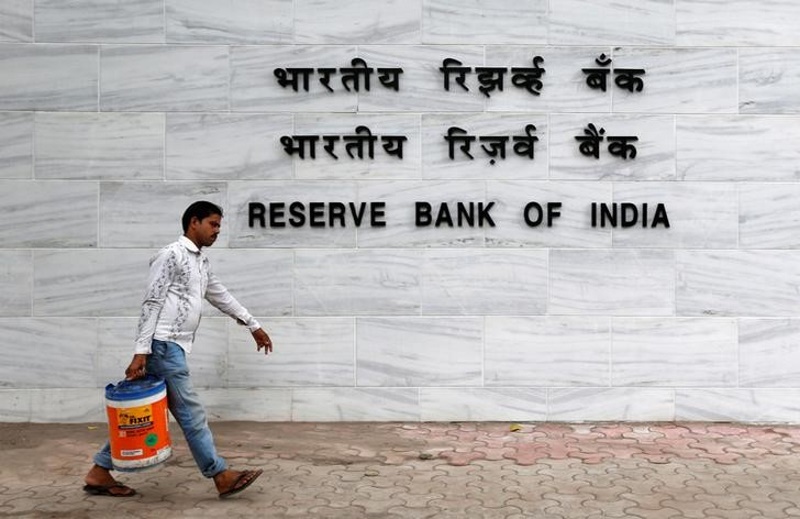- Home
- Apps
- Apps Features
- RBI Master Directions 2017: What You Need to Know About the New Mobile Wallet Guidelines
RBI Master Directions 2017: What You Need to Know About the New Mobile Wallet Guidelines

The Reserve Bank of India as issued new guidelines for the operation of Prepaid Payment Instruments (PPIs) such as mobile wallets - such as Paytm, MobiKwik, or FreeCharge. Called the RBI Master Directions 2017, these new rules come into effect right away, and help set up a number of different norms, including interoperability - so these different wallets don't operate as separate silos any more. Here's everything you need to know about the new guidelines in 8 simple points.
- In the future, you may be able to send money directly from your Paytm wallet to your Airtel Money balance - section 18 states that PPIs will be allowed to participate in other interoperable payment systems.
- Specific directions for interoperability have not been issued as yet, so this is still a work in progress.
- The minimum net worth to run a prepaid instrument like a mobile wallet has now been raised to Rs. 25 crores, from Rs. 5 crores earlier, as per section 5.2. The companies have until 2020 to meet this requirement. This will make it harder for new companies to enter the space, and helps the incumbents.
- KYC wallets will be able to be used for cross-border transactions, as listed in section 4.2. In theory at least, this would let you - for example - use your Amazon Pay balance not just on Amazon.in but also on Amazon.com.
- All wallet accounts must now do KYC within 60 days, as per section 9.2. Until now, you could have a wallet account with a balance of under Rs. 20,000 without an ID check under KYC norms but if you don't get KYC done within 60 days, no more money can be added to the wallet - though you can still use the money in it.
- Wallets need to have separate logins and passwords from other services - section 15 talks about security and risk management. Section 15.3(a) says that wallets have to provide a separate login than other services offered by the issuer. It also includes other security measures, such as two-factor authentication for when the PPI gives physical cards, velocity checks, and systems of alerts.
- As an additional security measure, in section 17.5 the rules state the mobile app should not be allowed to be installed on rooted devices.
- Metro cards and other PPIs for transit systems can also be used at shops on the premises of the transit system, as per section 10.4. KYC won't be required for such PPIs.
Get your daily dose of tech news, reviews, and insights, in under 80 characters on Gadgets 360 Turbo. Connect with fellow tech lovers on our Forum. Follow us on X, Facebook, WhatsApp, Threads and Google News for instant updates. Catch all the action on our YouTube channel.
Related Stories
- Samsung Galaxy Unpacked 2025
- ChatGPT
- Redmi Note 14 Pro+
- iPhone 16
- Apple Vision Pro
- Oneplus 12
- OnePlus Nord CE 3 Lite 5G
- iPhone 13
- Xiaomi 14 Pro
- Oppo Find N3
- Tecno Spark Go (2023)
- Realme V30
- Best Phones Under 25000
- Samsung Galaxy S24 Series
- Cryptocurrency
- iQoo 12
- Samsung Galaxy S24 Ultra
- Giottus
- Samsung Galaxy Z Flip 5
- Apple 'Scary Fast'
- Housefull 5
- GoPro Hero 12 Black Review
- Invincible Season 2
- JioGlass
- HD Ready TV
- Laptop Under 50000
- Smartwatch Under 10000
- Latest Mobile Phones
- Compare Phones
- OPPO A6v 5G
- OPPO A6i+ 5G
- Realme 16 5G
- Redmi Turbo 5
- Redmi Turbo 5 Max
- Moto G77
- Moto G67
- Realme P4 Power 5G
- HP HyperX Omen 15
- Acer Chromebook 311 (2026)
- Lenovo Idea Tab Plus
- Realme Pad 3
- HMD Watch P1
- HMD Watch X1
- Haier H5E Series
- Acerpure Nitro Z Series 100-inch QLED TV
- Asus ROG Ally
- Nintendo Switch Lite
- Haier 1.6 Ton 5 Star Inverter Split AC (HSU19G-MZAID5BN-INV)
- Haier 1.6 Ton 5 Star Inverter Split AC (HSU19G-MZAIM5BN-INV)

















